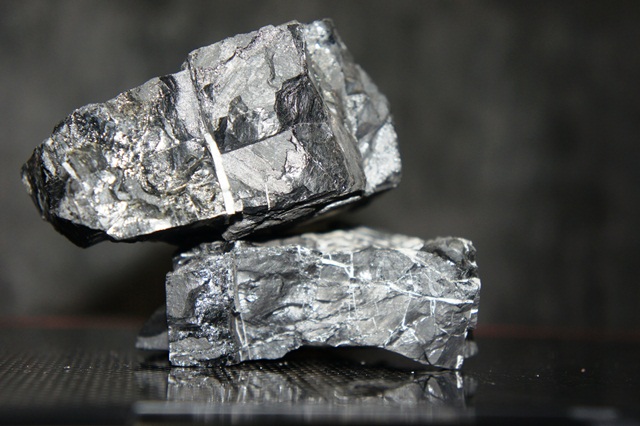ASPIRE NEEDS RAIL APPROVAL TO START MONGOLIA COAL MINE ON TIME
Aspire Mining Ltd., the Australian company seeking to build a coal mine in Mongolia, said it needs government approval for a rail line by the end of the year to meet its production target.
“The critical part in terms of time line is the railway,” David Paull, managing director of Perth-based Aspire, said in a phone interview yesterday. The company expects this month to complete the path of the $1.2 billion line that will connect its Ovoot coking coal mine to the northern city of Erdenet, he said.
“There’s a very good socioeconomic reason for rail development in northern Mongolia,” Paull said. “If we don’t have a railway, we don’t have a material production profile for the mine.”
Aspire is seeking the approval as Mongolia’s government wants greater control of Rio Tinto Group’s $6.6 billion Oyu Tolgoi copper and gold mine. The Ovoot mine, scheduled to start producing steelmaking coal in 2016, has the second-largest coking coal reserve in Mongolia after Tavan Tolgoi’s West Tsankhi, Aspire said last month.
“You have to look at Rio Tinto which obviously sees that Oyu Tolgoi has a terrific long term future,” Paull said. “You have to look at the fact that Anglo American just appointed a country director there. These companies are not looking at the next year or two. They’re looking at the next five to ten years.”
2016 Production
Aspire’s mining permit is in good standing and there has been no discussion to alter royalty agreements, he said.
The stock rose 3.1 percent to 9.9 Australian cents as of 3:49 p.m. in Sydney, bringing this year’s advance to 46 percent, compared with the 10 percent gain in the benchmark S&P/ASX 200 Index.
Aspire’s largest shareholder is SouthGobi Resources Ltd., controlled by a Rio Tinto unit, which holds 18.8 percent of the company, according to data compiled by Bloomberg. Noble Group Ltd., the second-largest shareholder, last month increased its stake to 15 percent.
Coking coal prices aren’t expected to rise much further, Paull said.
“The next response is really what’s happening on the cost side,” he said. “Longer term, holders of these assets aren’t prepared to accept losses at current prices so there will need to be some supply response to reflect that.”
Japanese buyers agreed to pay BHP Billiton Ltd., the world’s biggest exporter of coking coal, $165 a metric ton for the first quarter, according to UBS AG, a record low for contracts set on a quarterly basis. Asian buyers may pay $175 a ton for the three month period starting April 1, according to a Bloomberg News survey last month.
–Editors: Madelene Pearson, Abhay Singh
To contact the reporter on this story: Michelle Yun in Hong Kong at myun11@bloomberg.net
To contact the editor responsible for this story: Jason Rogers at jrogers73@bloomberg.net
“The critical part in terms of time line is the railway,” David Paull, managing director of Perth-based Aspire, said in a phone interview yesterday. The company expects this month to complete the path of the $1.2 billion line that will connect its Ovoot coking coal mine to the northern city of Erdenet, he said.
“There’s a very good socioeconomic reason for rail development in northern Mongolia,” Paull said. “If we don’t have a railway, we don’t have a material production profile for the mine.”
Aspire is seeking the approval as Mongolia’s government wants greater control of Rio Tinto Group’s $6.6 billion Oyu Tolgoi copper and gold mine. The Ovoot mine, scheduled to start producing steelmaking coal in 2016, has the second-largest coking coal reserve in Mongolia after Tavan Tolgoi’s West Tsankhi, Aspire said last month.
“You have to look at Rio Tinto which obviously sees that Oyu Tolgoi has a terrific long term future,” Paull said. “You have to look at the fact that Anglo American just appointed a country director there. These companies are not looking at the next year or two. They’re looking at the next five to ten years.”
2016 Production
Aspire’s mining permit is in good standing and there has been no discussion to alter royalty agreements, he said.
The stock rose 3.1 percent to 9.9 Australian cents as of 3:49 p.m. in Sydney, bringing this year’s advance to 46 percent, compared with the 10 percent gain in the benchmark S&P/ASX 200 Index.
Aspire’s largest shareholder is SouthGobi Resources Ltd., controlled by a Rio Tinto unit, which holds 18.8 percent of the company, according to data compiled by Bloomberg. Noble Group Ltd., the second-largest shareholder, last month increased its stake to 15 percent.
Coking coal prices aren’t expected to rise much further, Paull said.
“The next response is really what’s happening on the cost side,” he said. “Longer term, holders of these assets aren’t prepared to accept losses at current prices so there will need to be some supply response to reflect that.”
Japanese buyers agreed to pay BHP Billiton Ltd., the world’s biggest exporter of coking coal, $165 a metric ton for the first quarter, according to UBS AG, a record low for contracts set on a quarterly basis. Asian buyers may pay $175 a ton for the three month period starting April 1, according to a Bloomberg News survey last month.
–Editors: Madelene Pearson, Abhay Singh
To contact the reporter on this story: Michelle Yun in Hong Kong at myun11@bloomberg.net
To contact the editor responsible for this story: Jason Rogers at jrogers73@bloomberg.net

Comments
Post a Comment